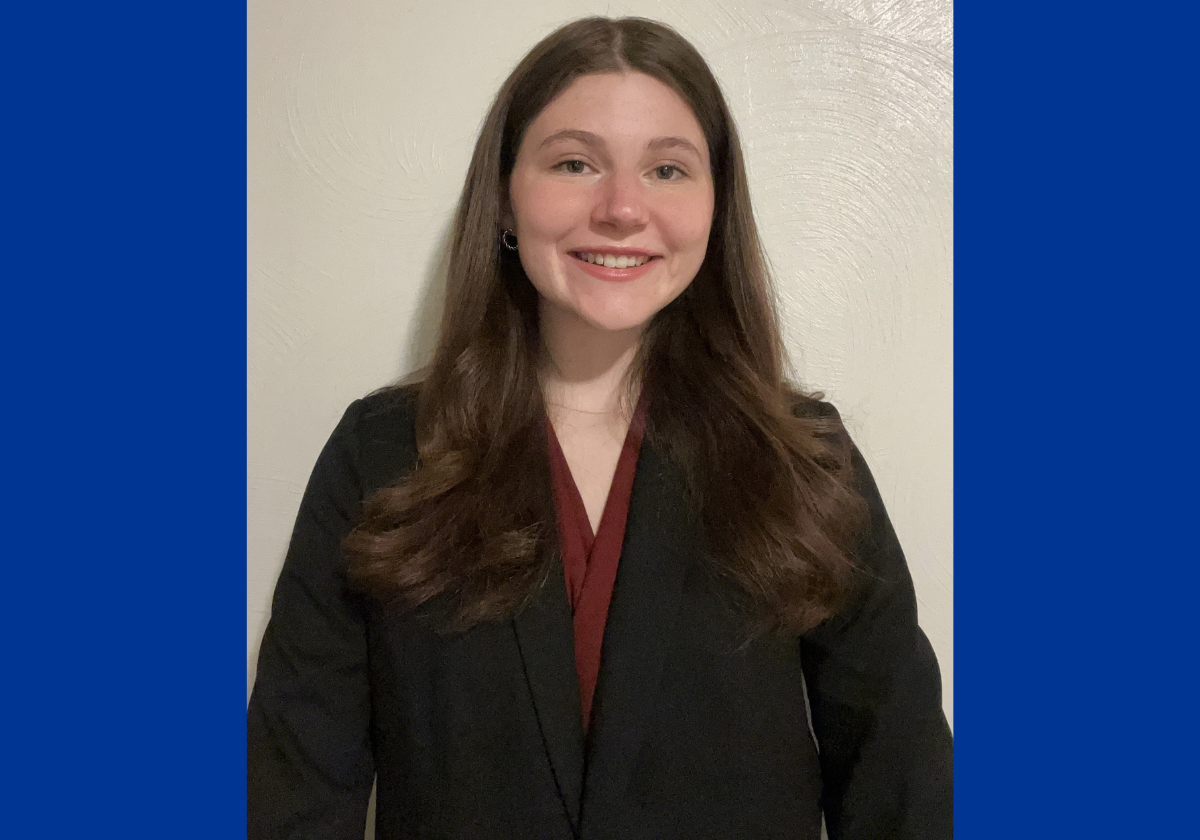With the limited number of research funds available to undergraduate students, the School of Health and Rehabilitation Sciences (SHRS) Undergraduate Student Summer Research Award provides undergraduate students with funds to explore meaningful research, offering an opportunity to expand their interests outside of the classroom curriculum.
Recipients of the award will conduct research on their topic of choice that addresses a social or disability problem in the health, assistive technology and rehabilitation fields. The recipient is granted $5,000 for the summer to assure that they can devote themselves full-time to their project. Funds may be used toward living expenses and research related travel.
The 2023 Undergraduate Student Summer Research Award recipient is Amelia Saccomandi, a student in the Communication Science program at SHRS. Saccomandi’s project mentor is Professor Sheila Pratt.
Read more to learn about the award, and Saccomandi’s research she has chosen to explore.
—
Q: What is the purpose of your research project?
A: My research study involves assessing the relationship between vocal control during singing and frequency-based music perception in children who wear cochlear implants (CI). Their performance will be compared to that of children and young adults with normal hearing. The purpose of this study is to investigate the role of hearing for vocal control (known as auditory feedback) in young CI users. We plan to do this by first studying their ability to use vocal control while singing, then studying their ability to perceive and segregate frequency-based interleaved melodies.
Q: Why did you choose to investigate this particular topic?
A: I selected this as my research topic for a few reasons. My future goals include working with the pediatric population, and this project allowed me to research children and children’s hearing and feedback abilities. Secondly, I was surprised to find how little research has been done on music processing and production abilities of cochlear implant users, especially children. Therefore, I thought it would be an interesting topic to learn more about and possibly add to the limited knowledge we have of it.
Q: What are your future career goals?
A: Once I complete my Communication Science undergraduate degree, I plan to attend graduate school to one day become an audiologist. I ideally would love to work in a clinical setting like a hospital or private practice with the pediatric population.
Q: How has your experience been studying at Pitt Communication Science and Disorders?
A: I have loved my time in Pitt SHRS so far! I have had wonderful professors, met great friends and have been presented with endless opportunities. SHRS has many unique aspects that have allowed me to grow immensely in the last few years. SHRS’ Communication Science program has a large variety of research labs which all welcome and encourage undergrad participation. I was able to find a lab that fit my particular interests, pediatric audiology, and have gained incredible experience and knowledge through this lab.
SHRS also provides the opportunity for students to complete a Bachelor of Philosophy (BPhil), a degree I didn’t know existed, let alone something I would be able to pursue, until joining SHRS. The BPhil is an independent research thesis that allows students to create and run their own research project, under the guidance of a chosen mentor, and eventually write and defend a thesis on this research. This unique degree allows undergraduate students to gain invaluable research and professional experience, as it allows the student to take on a very large role in creating, executing and interpreting their own research. My research and BPhil have also been supported through the SHRS Undergraduate Student Summer Research Award I was awarded this past summer.
Additionally, the support of the CSD Department to participate in the American Speech-Language Hearing Association as a student for the past two years has provided me with invaluable experience attending, learning from and networking at our field’s national convention. Opportunities like these have allowed me to make the most of my undergraduate experience, and I owe them to the mentorship and opportunity SHRS has provided me.
Q: What does this award mean to you?
A: This award means a great deal to me. It allowed me to focus solely on my research project this summer and put it at the top of my priority list, something I struggle to be able to do during the busy fall and spring semesters. This award also showed me that I am supported not only by my mentor, Professor Sheila Pratt, but by the school as well. This award has allowed me to further develop my professional skills through the written proposal, interview process and eventually the completion of this project, which is projected to be next year.
—
Saccomandi began this research in 2023, and her award supported her work in summer 2023. She will finish her research when she earns her BPhil degree in April 2024.
Read about the 2021 award winner, Jordann Antoan
Read about the 2020 award winner, Brandon Nguy

